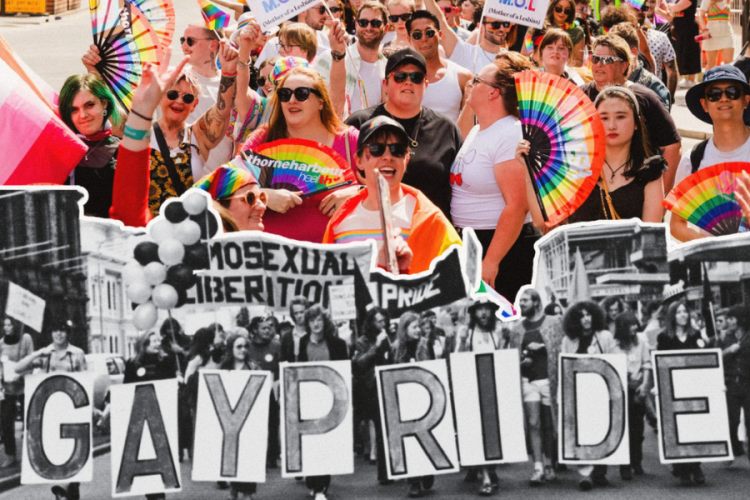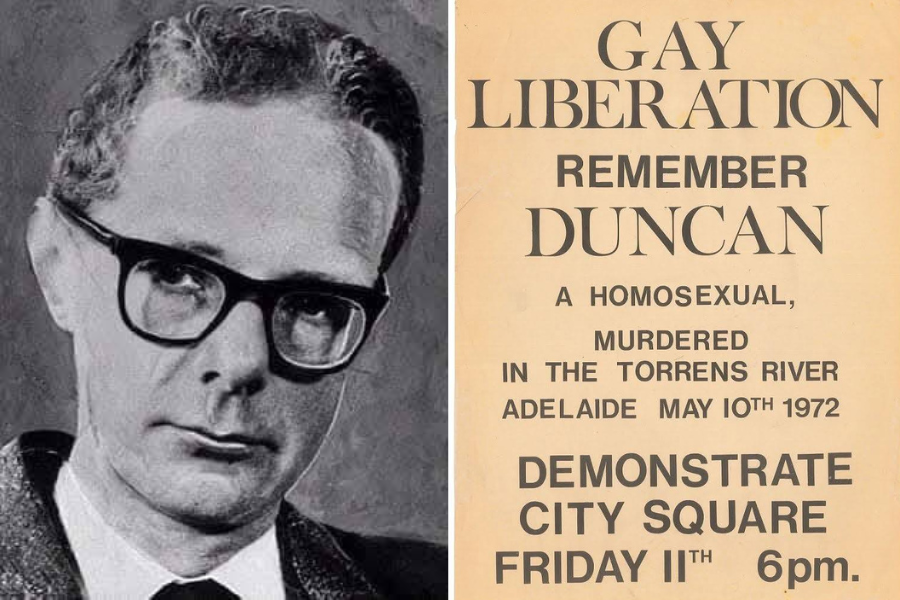
Images: File photo and Poster Collection, Australian Queer Archives, Melbourne.
Fifty years after South Australia led the nation on gay law reform, the fight – and the joy – continue. Here’s what that milestone means today.
In 1972, 21-year-old Will Sergeant was saving up for electric shock ‘aversion therapy’ to “cure” his homosexuality. By 1973, he was an activist in a gay commune, leading protests – including a guerrilla same-sex “love-in” in David Jones’ bedding department.
“It was a very exciting time,” Will remembers. “In a way we were the first ‘out’ generation.”
But back then, male homosexual acts were still illegal, carrying penalties of up to ten years in prison.
Looking back: Will’s story
That same year Will started coming out, gay law lecturer Dr George Duncan was thrown into the River Torrens and drowned – a brutal killing at a well-known gay beat behind Adelaide University.
Will had considered going there himself, but after Duncan’s death thought: “Perhaps that’s not the safest way to go about meeting someone.”
SAPOL brought in detectives from Scotland Yard to investigate, and their inquiry pointed to three vice squad officers. Nothing was ever proven in court and no one was convicted.
But Dr Duncan’s murder shocked South Australia, galvanising public outrage that led to landmark reform just a few years later. In 1975, homosexuality was decriminalised – a milestone now marking its 50th anniversary.
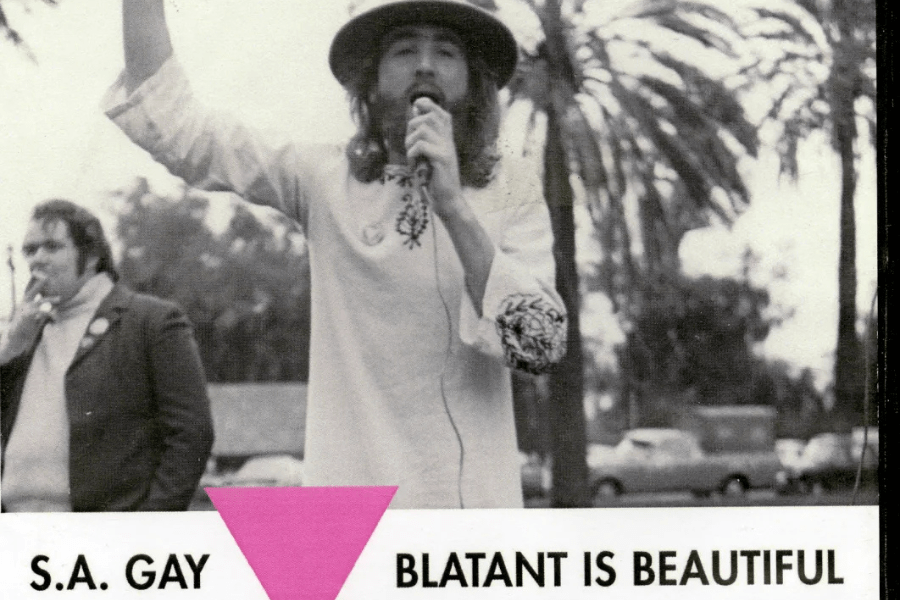
Image: Jill Matthews Collection, Australian Queer Archives, Melbourne.
The personal becomes political
Soon after Dr Duncan’s murder, Will attended his first Gay Liberation meeting, which was “life-changing”. In 1973, Adelaide staged its first Pride March, ‘The Proud Parade’, down Rundle Street at the height of Saturday shopping. Will was there in the frontline, confronting bemused shoppers.
“It was exhilarating,” he remembers. The group chanted slogans like “2, 4, 6, 8, gay is just as good as straight” and “3, 5, 7, 9, try it our way just one time”. They copped little more backlash than a couple of eggs.
Support also came from unexpected quarters. The Advertiser argued that the state had “no business in its citizens’ bedrooms” and kept up its editorial backing for reform until the law was changed. And in 1975, Adelaide’s new Anglican Archbishop, Keith Rayner, publicly supported decriminalisation – a bold stance in the church at the time.
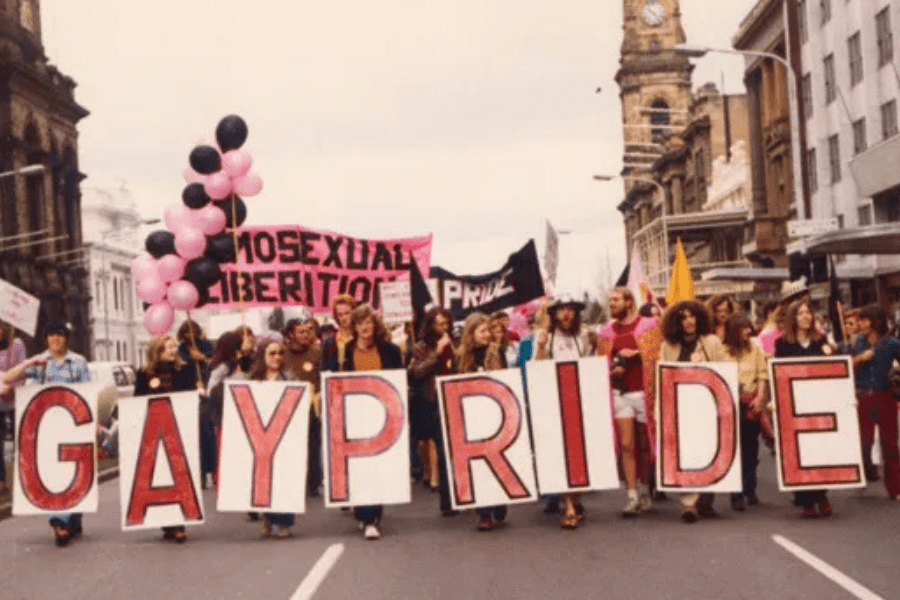
Image: Jill Matthews Collection, Australian Queer Archives, Melbourne.
From reform to recognition
It was also the era of Premier Don Dunstan, whose reformist government became known for sweeping social change (and those famous pink shorts in Parliament).
Early efforts by Liberal MP Murray Hill laid the groundwork, but it was Attorney-General Peter Duncan’s private member’s bill – backed by the Dunstan Government – that finally achieved full decriminalisation.
On 2 October 1975, South Australia became the first state to decriminalise male homosexuality, cementing its reputation as a national leader 50 years ago this year.
Decades on, Will remains a “proud unreconstructed 1970s gay liberationist”. He was awarded the Medal of the Order of Australia for his service to the rainbow community – recognition of a lifetime spent making LGBTQIA+ history visible.
His alter ego, Dr Gertrude Glossip, has become a local legend, keeping that history alive with walking tours and books that mix humour with poignant storytelling.
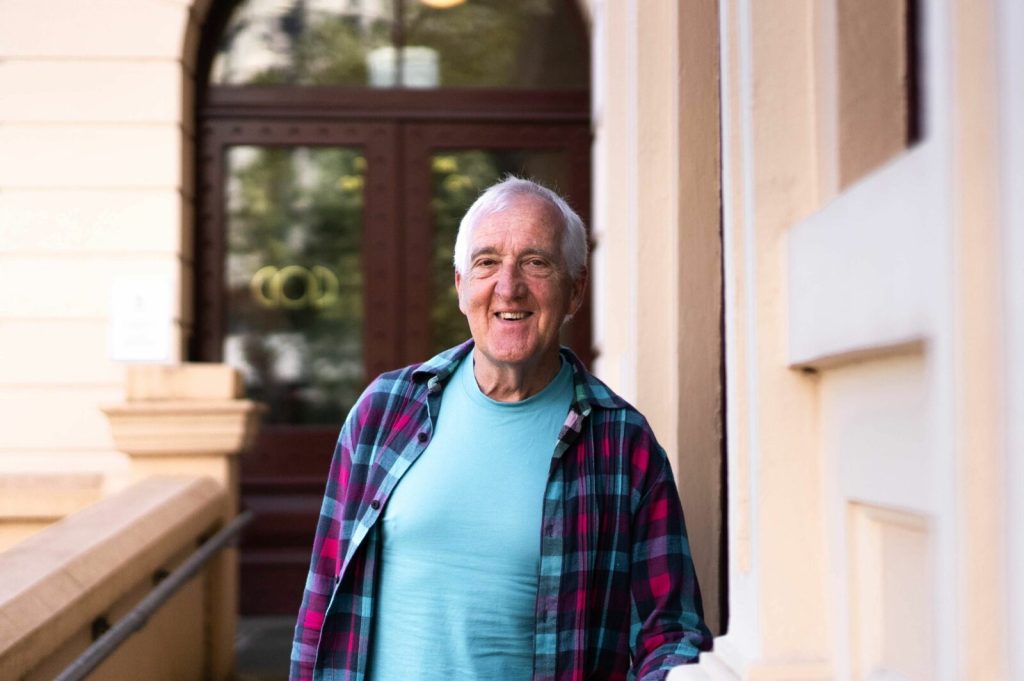
Image: Alex van de Loo.
Progress and unfinished business
Fifty years on, Varo Lee – Chief Executive of the South Australian Rainbow Advocacy Alliance – says young LGBTQIA+ South Australians are eager to connect with this history.
“I’ve been hearing more and more from young people about how much they want to understand what people went through 50 years ago,” they say. “It gives us hope to see how far we’ve come, but also shows we’re still facing very similar issues.”
The decriminalisation of homosexuality was a turning point, but Varo stresses that liberation hasn’t been experienced equally across the community.
“Some parts of our community continue to face more stigma and discrimination than others, and the challenges can look very different depending on who you are.”
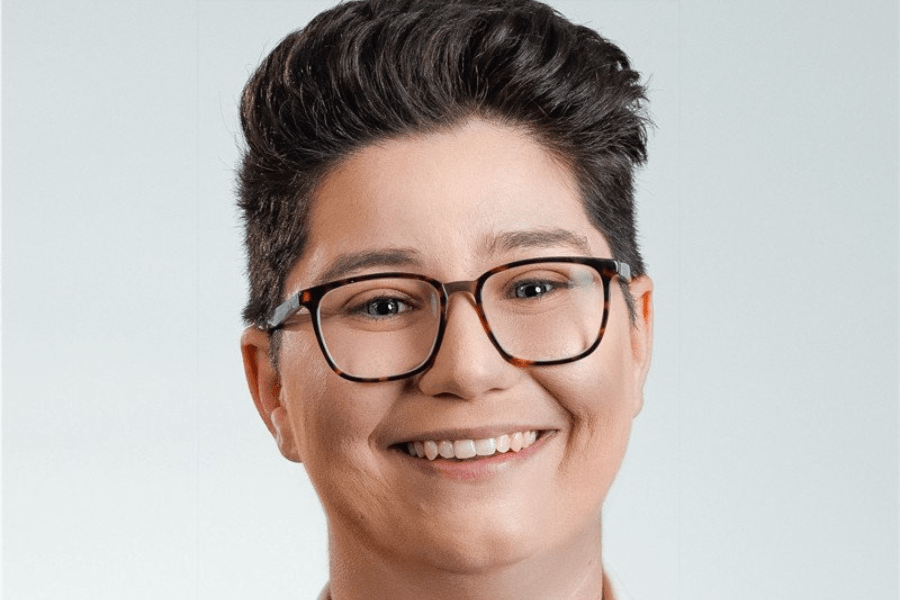
Hate and hope
Right now, the biggest concern is a rise in hate. “Trans women in particular are bearing the brunt of the level of hatred we’re seeing at the moment in our communities,” Varo says.
That abuse often lands hardest on children and young people. Varo recalls supporting the family of an 11-year-old trans girl whose simple use of the girls’ bathroom became a lightning rod for media outrage. “The reality is all she wanted was to just be a kid.”
Still, Varo believes visibility and role models make a huge difference. “Growing up, I didn’t have language for being non-binary until I saw myself reflected in media. That was the trigger point for me to really explore and understand who I was. It showed me I wasn’t alone, and that was okay.”
For Varo, the 50th anniversary is a reminder that progress takes persistence – and that SA can’t rest on its 1975 reputation. “Queer liberation isn’t finished – we still have a long way to go.”
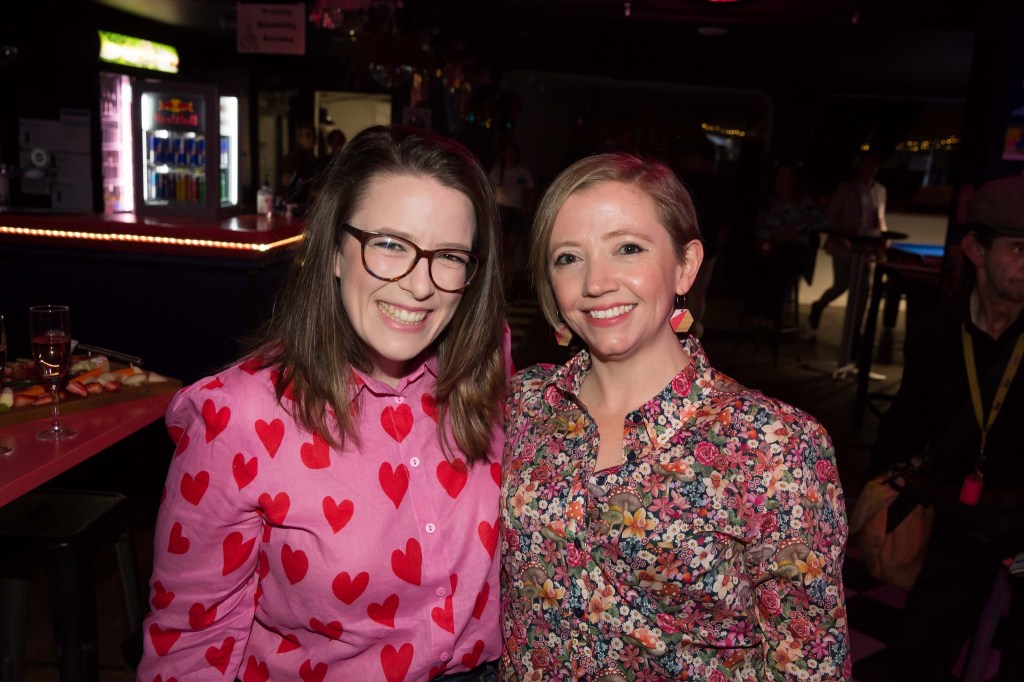
Feast and celebration
For Tish Naughton, CEO of Feast Festival, the 50th anniversary isn’t only about looking back – it’s about creating joyful, visible spaces right now.
“Feast is about visibility,” she says. “Until you see yourself represented, you don’t really feel like you belong. And when you walk into Picnic in the Park and see thousands of people like you, it’s life-changing.”
This year’s program (running from 1-23 November) is the biggest in more than a decade, with 117 events across 67 venues and more than double the number of regional shows. There’s everything from LGBTQIA+ history forums and exhibitions to drag, music and performance.
The theme, Liberation, marks 50 years since decriminalisation – but also speaks to the need for safe, celebratory spaces in the present.
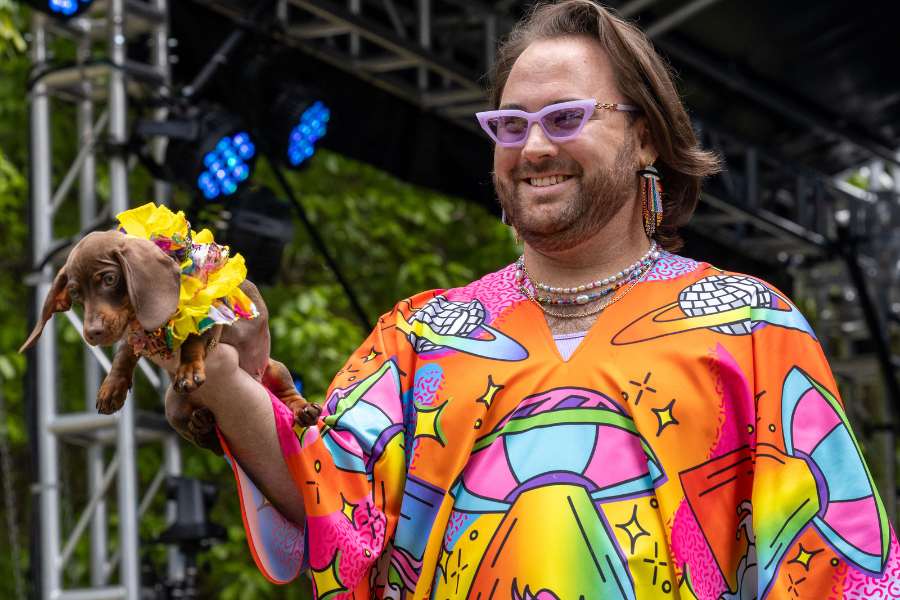
Feast program highlights
The family-friendly Picnic in the Park on 22 November will be the centrepiece, completely free for everyone to enjoy. Whitmore Square will come alive with music, stalls, food trucks and the much-loved Dog Show.
Other highlights include Don’s Table – a reimagining of Don Dunstan’s 1997 “Erotic Feast” dinner party – and the Adelaide Queer Film Festival, featuring the Australian premiere of Strange Journey: The Story of Rocky Horror.
Then there’s erotic pottery workshops, queer pétanque, a burlesque murder mystery night and the fabulous new Feast Hub, which comes complete with a life-sized rideable pink pony.
For Tish, what matters most is that Feast welcomes everyone. “It’s not just for LGBTQIA+ people. It’s about creating spaces where people connect, whether you’re LGBTQIA+ or an ally,” she says. “That’s how you change hearts and minds – through stories, through joy.”
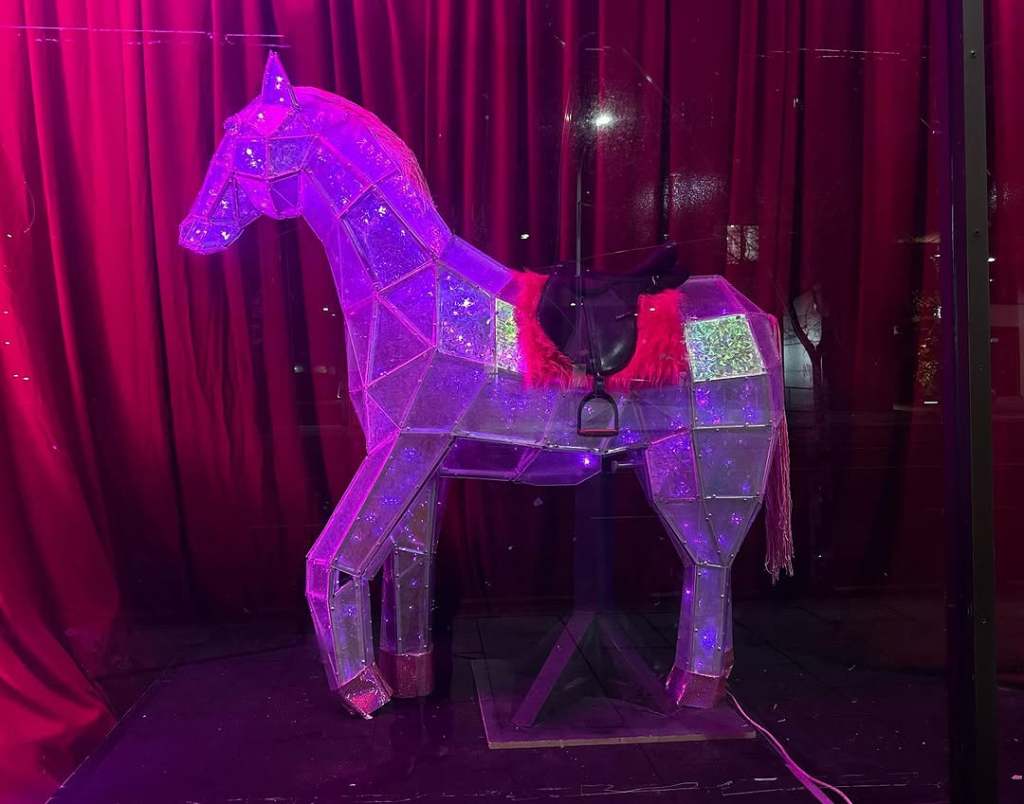
A year of commemoration
Feast might be the glittering finale, but it’s just one part of a year-long program marking the 50th anniversary.
On 2 October, Parliament House will host a re-enactment of the 1972, 1973 and 1975 debates that changed SA history – staged in the Legislative Council chamber itself, and streamed online for those who can’t be there.
Two weeks later, a commemorative walk will trace the River Torrens from the Dr Duncan Memorial to the Old Adelaide Gaol. A civic display at Adelaide Town Hall and City Library is also on until 10 October, sharing archival material and personal stories of courage and pride.
Community events add to the line-up: the Intrastate Volleyball Tournament (31 October–1 November) and the roller derby Pride Cup (1 November).
As Will puts it: “Festivals by their very nature are a celebration of a city’s diversity… it’s not just for the people at the event, but for those who pass by, who see us and know our community is visible”.
And then, the big one: Adelaide’s Pride March on 1 November. Thousands will again take to the city streets in a modern echo of those first chants and banners that once stunned Saturday shoppers on Rundle Street. It’s followed by the Poppin Out Street Party the same night.
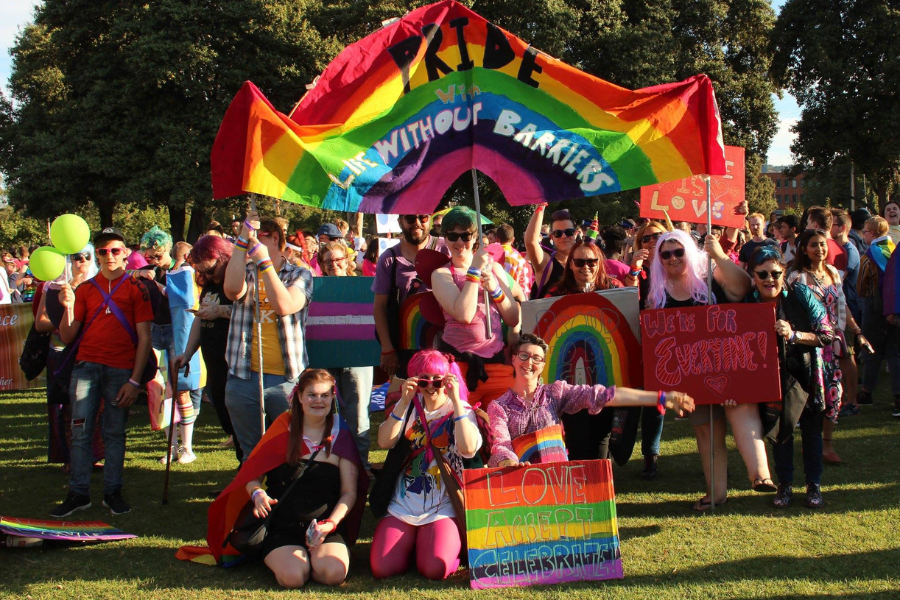
Why it matters now
For Will, the anniversary is about remembering how far we’ve come – and how fragile progress still is. “It’s a reminder that we always have to be activists,” he says. “The forces of conservatism are always there, so we need to stand up and stand out.”
Varo says they’re inspired by the role models who came before.
“It’s unreal to think that 50 years ago there were these incredible champions and advocates leading that first Pride March,” they say. “I think young people today can take a lot of hope from that. But queer liberation isn’t finished – we still have a long way to go.”
Find the full program of commemorative activities marking the 50th anniversary of the decriminalisation of homosexuality in South Australia here.
Plan your Feast Festival and book your tickets here. Register for the 2025 Pride March here.


